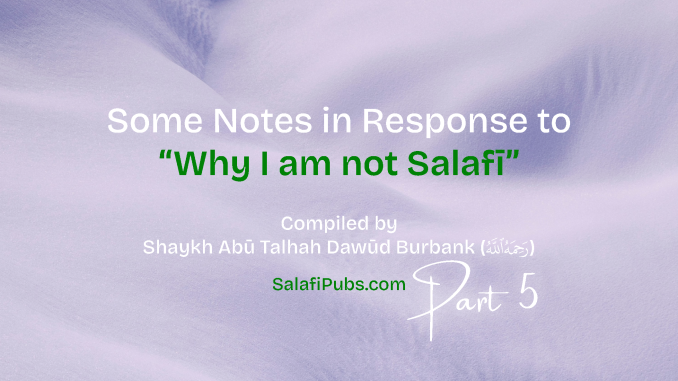
01. Regarding what the Tricksters Attribute to Al-Hāfiz Al-Hakamī (may Allāh have mercy on him)
As for what the tricksters attribute to Al-Hāfiz Al-Hakamī (may Allāh have mercy on him), then the reality is that he mentions a whole section of narrations from fifteen Companions concerning ‘An-Nuzūl’ (the Descending of Allāh —the Most High).
So he mentions the reports which occur from each Companion, and amongst these, he mentions the hadīth of Abū Hurairah (may Allāh be pleased with him) in that regard which occurs in both the Sahīh of Al-Bukhārī and that of Muslim, and in the rest of the source books of hadīth, and that Imām Ibn Khuzaymah reports it through more than thirty chains of narration from him in his ‘Kitāb-ut-Tawhīd’.
So after mentioning different wordings for the hadīth of Abū Hurairah, he says: “And in the narration of ʿAbdur-Razzāq: from Maʿmar: from Az-Zuhrī: from Saʿīd ibn Al-Musayyib: from Abū Hurairah (may Allāh be pleased with him) from the Prophet (Peace and blessings be upon him), that he said: “Allāh descends to the lowest heaven and He has a Foot-Stool (Kursī) in every heaven. So when He descends to the lowest heaven He sits upon His Foot-Stool…” [to the end of the narration].
Ibn Mandah reported it and said: ‘It has a basis in mursal (disconnected) form’.”
[01] — So the reality is that this is not a statement of Al-Hāfiz Al-Hakamī (may Allāh have mercy on him) as the tricksters present it, but rather a narration which he mentions. Then in addition to this, he indicates the fact that it is not authentic by saying: “Ibn Mandah reported it and said: ‘It has a basis in ‘mursal’ form’”, i.e., it is not authentic as a connected narration from the Prophet (Peace and blessings be upon him).
[02] — As for the narration itself then it is indeed not authentic as its chain with Ibn Mandah in ‘Ar-Radd ʿAlal-Jahmiyyah’ (no. 56) contains the narrator Mahfūz ibn Abī Tawbah who was declared to be very weak by Imām Ahmad — [as pointed out by the verifier of the book: Shaikh ʿAlī ibn Nāsir Al-Faqīhī].
02. What Shaikh Ibn Bāz (may Allāh have mercy on him) said in his book ‘At-Tanbīhāt
As for what Shaikh Ibn Bāz (may Allāh have mercy on him) said in his book ‘At-Tanbīhāt’ (p. 22), then the Shaikh affirms the principle of the Ahlus-Sunnah with regard to affirming or denying attributes for Allāh (the Most High), so he said:
“The position of the Ahlus-Sunnah wal-Jamā’ah is: there is to be no affirming except with a text and no denying except with a text:
Then As-Sābūnī (may Allāh guide him) mentioned declaring Allāh (the Perfect) to be free of having a body, pupils, ear-cavities, a tongue, and a throat; and this is not the position of the people of the Sunnah, rather it is from the speech of the people of blameworthy theological rhetoric and their going beyond the bounds. So the Ahlus-Sunnah do not negate for Allāh except what He negated for Himself, or what His Messenger (Peace and blessings be upon him) negated for Him; nor do they affirm for Him anything except that which He affirmed for Himself, or which His Messenger (Peace and blessings be upon him) affirmed for Him.
So with regard to these things there is nothing in the texts which negate them, nor anything which affirms them; so what is obligatory is to withhold regarding them and not to involve oneself with negating or affirming them.
Then sufficient in that regard is the saying of the Ahlus-Sunnah regarding the affirmation of the Attributes and Names of Allāh: That His creation do not resemble Him in that, and that He (the One free of all imperfections) has no rival and no one like Him.”
Translated by Abū Ṭalḥah Dāwud Burbank.
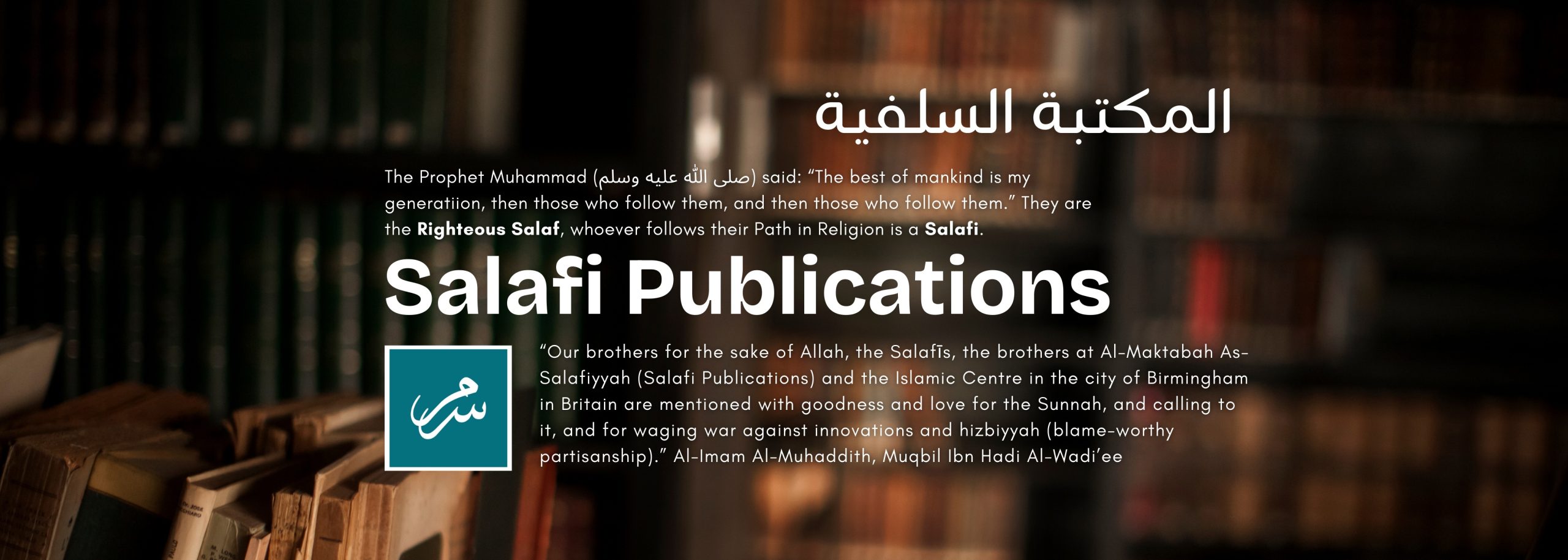
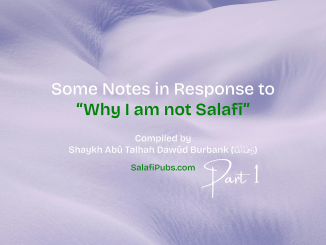
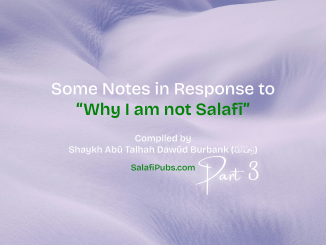
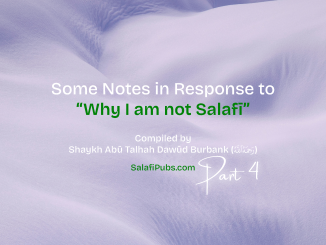
Be the first to comment